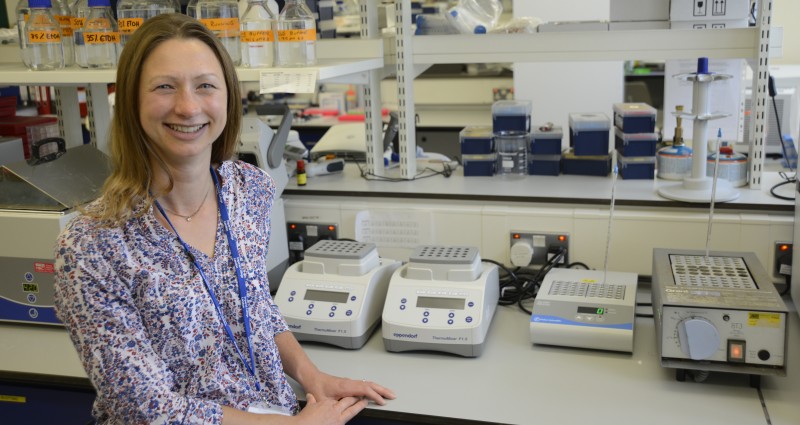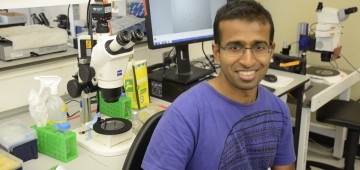
“This has been a challenging year” Dr Julie Glanville admits, “establishing a lab is full of new hurdles. The tissue culture is now up and running, and the Chain-Florey Scheme provides a research assistant which is invaluable.”
Julie’s path towards becoming a Chain-Florey Lecturer began when she was still an undergraduate student in Cambridge. “I loved immunology right from the beginning. David Weatherall helped me to organize an elective in Vietnam. Out there, I was fascinated by the interplay of the immune system and tropical diseases. I met a haematologist who inspired me: haematology is such a unique specialty, and it allows me to bring together my love for immunology, tropical medicine, adventurous places and great science.” Julie trained as a haematologist in London and spent nine months in Africa setting up a MSc course and haematology service.
“I had always enjoyed bone marrow transplantation and adoptive T-cell therapy, and when I came back from Africa, I wanted to specialize in T-cells. I went to Oxford to do a DPhil with Andrew McMichael. I was very interested in how you can use T-cells therapeutically to treat viral infections post transplantation, and target T-cells to attack the leukaemia. Over the last few years technology has been developed where the T-cell is engineered to express a chimeric antigen receptor (CAR) that targets B-cells. The results are impressive.”
The field of adoptive T-cell therapy – transferring improved immune cells into a patient – is relatively new, and ripe with opportunities for junior researchers. “I am trying to develop some of the ideas from my PhD to optimize T-cells for adoptive therapy. This is at a basic science level which is where the CSC platform excels.”
Julie believes that the integration of medicine and basic science enriches both fields. “Institutes that integrate medicine and science are rare in the UK- these are two specialties in their own right with their own languages. That’s the benefit of the Chain-Florey Scheme but it’s also a great challenge. This year I have had to think about how to set up the infrastructure to work on human T-cells. Now I can study the signaling molecules we’ve identified and see if these enhance killing, and if the epigenetic state impacts function. Practicing medicine puts you in the path of great people needing cures, and this can open new directions in science”.
“The opportunity to look at things differently, to stop and think about the practice of medicine are some of the luxuries that the Chain-Florey programme provides.”

